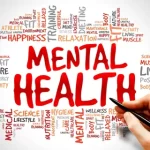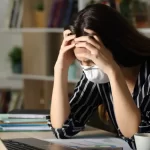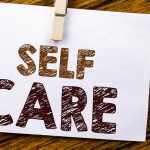We all have dark days, when things don’t quite go our way and life just seems to keep piling on the negativity. Normally, this can be tackled with some proactive channeling or some time spent with friends, but what happens when those dark days aren’t the anomaly but the norm? According to the World Health Organization, up to 350 million people around the world suffer from depression, and that it is one of the major causes of disability on the planet. One of the issues when it comes to tackling depression is that it often leads to, and is compounded by, dangerous behaviors that while offering temporary respite, merely increase the underlying problems and create a cycle of self-abuse that can become even more difficult to break free from.
Recognize yourself
If you’re suffering from depression, or any of the peripheral issues that surround the mental illness, such as alcohol and drug abuse, then you may all too often feel as if there is no way to break the pattern and reclaim your life. The truth is that there are actually a number of ways that you can tackle your problems, and they aren’t as intimidating or stressful as you might think.
Fighting depression is a very literal battle for your health, and if you can make it through to the other side, you will emerge stronger and more motivated than you ever thought possible. Of course, one of the biggest issues when trying to fight depression is that the illness itself acts as a demotivator, so you’ll be fighting on two fronts. The best way to tackle this is by starting with the basics.
Your first steps: The Basics
If you’re not just dealing with depression or anxiety, but also having to tackle substance abuse as well, the difficulties are increased significantly. It may seem difficult when juggling your mental health issues, but there are some small changes that you can make that can provide a boost for your mental health. Buying healthier food, and even opting to cook rather than falling back into the habit of fast-food and microwave meals, can go a long way to helping you with positive thoughts. Health benefits of fresh food aside, simply the mental effort that it can take to buy, prepare, and cook the ingredients, will give your mind something new to focus on that isn’t the norm, and that slight break from yourself can act as a catalyst for improved lifestyle habits.
If you’re feeling up to it, a little exercise can go a long way as well, and you don’t need to go to the gym. A long walk, a spot of gardening, or even just a tidy-up session accompanied by your favorite album can get the blood pumping and release some of those endorphins into your bloodstream. If you combine your forays with exercise into the natural world, you might be very surprised by the results. Depression can have a very draining effect on your energy levels, making it harder to acquire the required impetus to make it through the front door, but if you can manage it, you’ll realize that we very often undervalue the therapeutic and re-energizing value of the great outdoors. A walk through a park or through your local forest can work wonders, and although you’re going to need more help than a simple walk among the trees will provide, you might find that the boost (however short-lived it may be), is enough to get you motivated enough to take larger measures to tackle your issues.
Adapting your coping mechanisms
Remember that if you’re detoxing, then you’re going to be heading to an emotional rollercoaster, with bursts of depression and anxiety alternating with frantic bursts of positive energy. If you’re suffering from depression already and you try to detox without an awareness of the mental risks, the negativity can be often overwhelming, making it far more likely that you will revert back to your self-harming behavior. These coping strategies are your safety net, and it’s only by addressing them that you will be able to look beyond the dark horizon and find yourself a treatment that will help you. Even if you feel that it’s your substance abuse that is the real issue, it’s the underlying depression that is the catalyst for self-destructive behavior, so you need to be aware of the need to combat both areas.
Friends and family
The fact that you won’t be able to tackle the issues yourself can often be enough to put you off tackling them at all. This is when your support network will be essential. If you have family and friends that you can talk to, you may be surprised by the levels of support and the proactive advice that you may find. One of the problems with depression is that you often feel as if you are the only person suffering, and feeling alone is one of the main symptoms of depression, but often it can be a moment of clarity when you discover that those around you have similar experiences. If you have no support network, you still need to be aware that there is help available.
For when you’re overwhelmed
What you shouldn’t do if depression, anxiety, or substance abuse have taken over your life is to ignore the problem. It may feel as you have no way out of the negativity, but that’s merely a symptom of the depression itself. You may find that seeking professional help is the only way to address the causes and symptoms of your problems, and the good news is that there are plenty of resources available. You may opt for online therapy sessions that provide anonymity and professional advice, or you could decide to book into a rehabilitation center. While you may think that rehab centers are the sole preserve of the rich and famous, centers like Caron Pennsylvania can actually help a wide variety of people of any age. A brief search for drug rehab PA will give you a firm indication of the kinds of help that are available, and the chances are that you will find a program that will aid your recovery.
No matter how low you may feel right now, always remember that there is help available. It’s often the hardest thing in the world to admit that you need help, and the sense that there is a social stigma concerning mental health can often put you off seeking useful treatment. Remember, there are a wide range of resources available to you, and even if you feel alone right now, your best means of defending your mental health is by being proactive.







